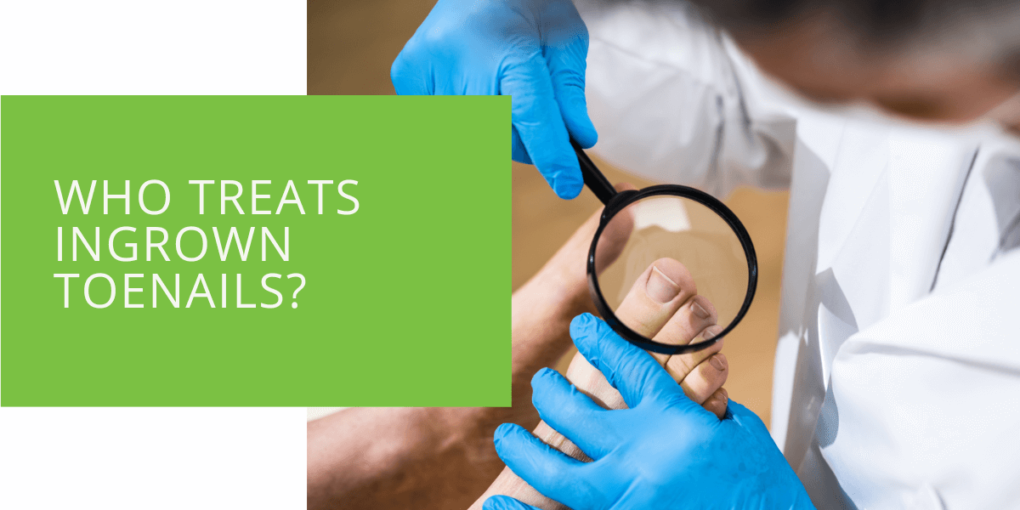Who Treats Ingrown Toenails?
Ingrown toenails can be a source of discomfort and pain, affecting your daily activities. Understanding who treats ingrown toenails, their expertise, and the available treatment options is crucial for managing this condition effectively.
Key Takeaways
- Due to their expertise and specialized training, podiatrists specialize in foot and ankle care and are the primary medical professionals for treating ingrown toenails.
- Seeing a podiatrist for ingrown toenails offers benefits such as comprehensive treatment options, specialized knowledge, and timely intervention to prevent complications.
- Prompt treatment from a podiatrist is essential for managing ingrown toenails effectively, reducing pain, promoting healing, and preventing recurrence.
The Role of Podiatrists
Podiatrists are medical professionals specializing in diagnosing and treating foot and ankle disorders. They undergo extensive training to provide comprehensive care for various foot conditions, including ingrown toenails.
Understanding Podiatrists
Podiatrists, also known as doctors of podiatric medicine (DPM), are licensed healthcare professionals who focus on preventing, diagnosing, and treating foot and ankle problems. They receive specialized education and training, including a four-year doctoral program in podiatric medicine and residency training in podiatric medicine and surgery.
Why Choose a Podiatrist for Ingrown Toenails
When it comes to treating ingrown toenails, podiatrists offer several advantages:
- Expertise in Foot Care: Podiatrists have in-depth knowledge of the structure and function of the foot and ankle, allowing them to diagnose and treat ingrown toenails accurately.
- Specialized Equipment: Podiatrists can access specialized tools and equipment for foot and nail care, ensuring safe and effective treatment.
- Comprehensive Treatment Options: Podiatrists can provide various treatment options for ingrown toenails, from conservative measures to minor surgical procedures tailored to individual needs.
Benefits of Seeing a Podiatrist
Seeing a podiatrist for ingrown toenails offers numerous benefits:
Expertise in Foot Care
Podiatrists specialize in treating conditions affecting the feet, making them uniquely qualified to address ingrown toenails. They can assess the severity of the condition, identify any underlying causes, and recommend appropriate treatment options.
Specialized Knowledge and Training
Podiatrists undergo extensive training in foot and ankle anatomy, biomechanics, and pathology, allowing them to provide comprehensive care for ingrown toenails. They stay up-to-date with the latest advancements in podiatric medicine, ensuring patients receive the highest standard of care.

When to See a Podiatrist
While some cases of ingrown toenails may resolve on their own with home care, it's essential to see a podiatrist if you experience persistent or severe symptoms. Signs that you may need professional treatment include:
- Persistent pain, redness, or swelling around the toenail
- Signs of infection, such as pus or drainage
- Difficulty wearing shoes due to discomfort
- Recurrent ingrown toenails
Importance of Timely Intervention
Seeking prompt treatment from a podiatrist can prevent complications associated with ingrown toenails, such as infection or developing an ingrown toenail splinter. Podiatrists can provide timely intervention to alleviate pain, promote healing, and prevent recurrence.
Treatment Options Provided by Podiatrists
Podiatrists offer a range of treatment options for ingrown toenails tailored to each patient's needs.
Conservative Measures
In mild cases of ingrown toenails, podiatrists may recommend conservative measures, such as:
- Soaking the foot in warm water to reduce inflammation
- Gently lifting the edge of the ingrown nail away from the skin
- Applying antibiotic ointment to prevent infection
Minor Procedures
Podiatrists may perform minor procedures to relieve and prevent further complications for more severe or recurrent ingrown toenails. These may include:
- Trimming the ingrown portion of the nail to relieve pressure
- Partial nail avulsion, where part of the nail is removed to allow proper healing
- Nail splinting, where a splint is applied to the nail to encourage adequate growth
Preventive Advice
To reduce the risk of ingrown toenails and promote overall foot health, podiatrists may offer the following preventive advice:
- Trim your toenails straight across, avoiding rounded edges
- Wear properly fitting shoes with adequate toe room
- Protect your feet from injury, especially if you have diabetes or reduced sensation
- Maintain good foot hygiene by keeping your feet clean and dry
Conclusion
When treating ingrown toenails, podiatrists are the experts you can trust. At ePodiatrists, we specialize in providing personalized care for various foot conditions, including ingrown toenails. Our experienced team is dedicated to helping you find relief from discomfort and achieve optimal foot health. Don't let ingrown toenails disrupt your life – schedule an appointment with us today and take the first step toward healthier, happier feet.

